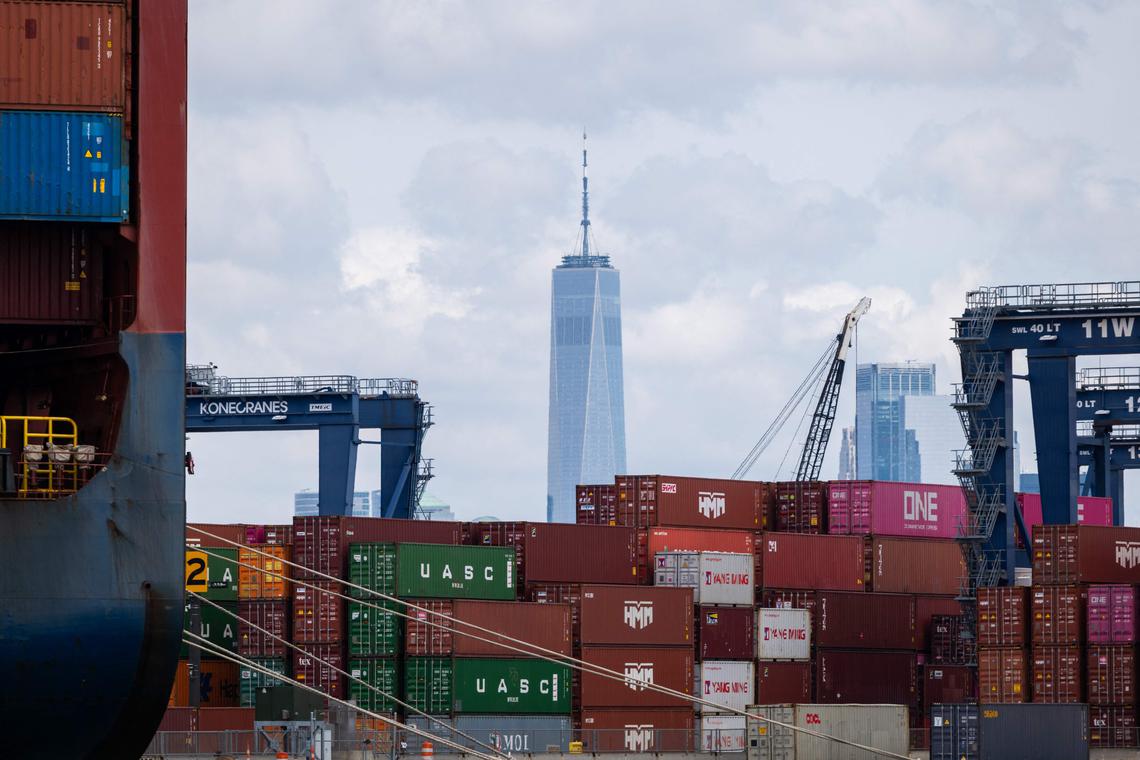SINGAPORE – The United States postponing its “Liberation Day” tariffs on other countries for 90 days might sound like a reprieve, but people should be bracing themselves for the US to not only move forward with the tariffs, but to also take stronger measures in time to come, said Senior Minister Lee Hsien Loong on April 14.
Pointing to how the tariff war between the US and China has already begun, SM Lee said the situation is going to escalate, with far-reaching consequences for US-China relations and the world.
In a one-hour speech ahead of a dialogue with union leaders, SM Lee noted the strong consensus within the US that China is a pacing challenge, and its determination to prevent China from overtaking it.
But China is determined to grow and take its rightful place in the world, and the result is a fundamental contradiction that is not going to be easily resolved, he added.
US President Donald Trump and his team fundamentally believe that America’s problem has to do with its trade deficit with the world, and a need to rebuild manufacturing back home, said SM Lee.
“Trump believes it, his team believes it, many of them, and these are goals which are going to be very difficult to achieve, so we must expect him to continue to pursue this objective,” he said.
“And when he makes moves and they have not delivered results, I think the conclusion, will not be to leave off, but will be to continue to do more moves and to take further strong measures.”
This means the US can be expected to take more steps over time, with very major consequences for many countries, including Singapore, he said.
SM Lee noted that the US postponed its reciprocal tariffs against other countries, but not against China. US tariffs on China have reached 145 per cent, and China’s tariffs on American goods have reached 125 per cent.
This will effectively kill off bilateral trade, as the tariffs would be too much for businesses to swallow, he added.
“That means entire businesses and trade flows are going to stop, and it won’t end with trade, because if I am quarrelling with you on such a serious matter, it is very difficult for me to cooperate with you on other equally serious things,” he said.
He cited American demands for Beijing’s cooperation on controlling fentanyl, whose ingredients come primarily from China. Abuse of the synthetic drug has fuelled a health crisis in the US.
“But China says, why should I try very hard? So this is going to escalate, and there will be far-reaching consequences for US-China relations.”
Should the tariffs take effect, countries can be expected to retaliate with their own reciprocal tariffs, as in the case of China and Canada. The result would be a downward spiral and an even worse impact on global trade, added SM Lee.
Such a situation would mean whole business models suddenly disappearing, and firms left with a surplus of workers and wondering how to look after them.
“That can very quickly lead to recession – recession in the US itself, and impact elsewhere too,” he said. “So this is going to be a burden on businesses, on consumers, on the global economy.”
On Singapore’s response, he said that the rest of the world still has a fair shot at maintaining the multilateral trading system even without the US, giving the example of the Trans-Pacific Partnership, which Mr Trump had pulled out of early in his first term, in January 2017.
The trade pact later became the Comprehensive and Progressive Agreement for Trans-Pacific Partnership, or CPTPP, reached in 2018, which includes Singapore and 10 other countries such as Japan and Vietnam as founding members.
“So America leaves the game, (we) can still carry on. And in the same way, the global trading system, America doesn’t want to play by the rules any more, but the other countries, we can maintain the system as we trade with each other,” he said.

SM Lee Hsien Loong noted that countries can still maintain the global trading system as they trade with each other.PHOTO: LIANHE ZAOBAO
Another key effort will be in promoting trade arrangements with like-minded partners. This includes a free trade agreement between Asean and the European Union, which Singapore is pushing for, he added.
Singapore also needs to do more with its neighbours, and SM Lee cited the Johor-Singapore Special Economic Zone, launched in January 2025 to bring about joint investment opportunities.
He noted that the project raised questions in Indonesian newspapers about what Singapore is doing with Indonesia, and will hopefully lead to a deeper partnership between the two countries.
In essence, Singapore will do its part to uphold the global trading system and prevent it from collapsing, even though the US wants to dismantle it, said SM Lee.
“Globally, with WTO (World Trade Organisation), (we will) try and keep the system intact… try and come together and form bigger blocs, and within Asean, try and make Asean stronger and more relevant,” he said.
“Singapore, we are small, but our trade is not small. I think we have some contribution to make.”
Join ST’s WhatsApp Channel and get the latest news and must-reads.

